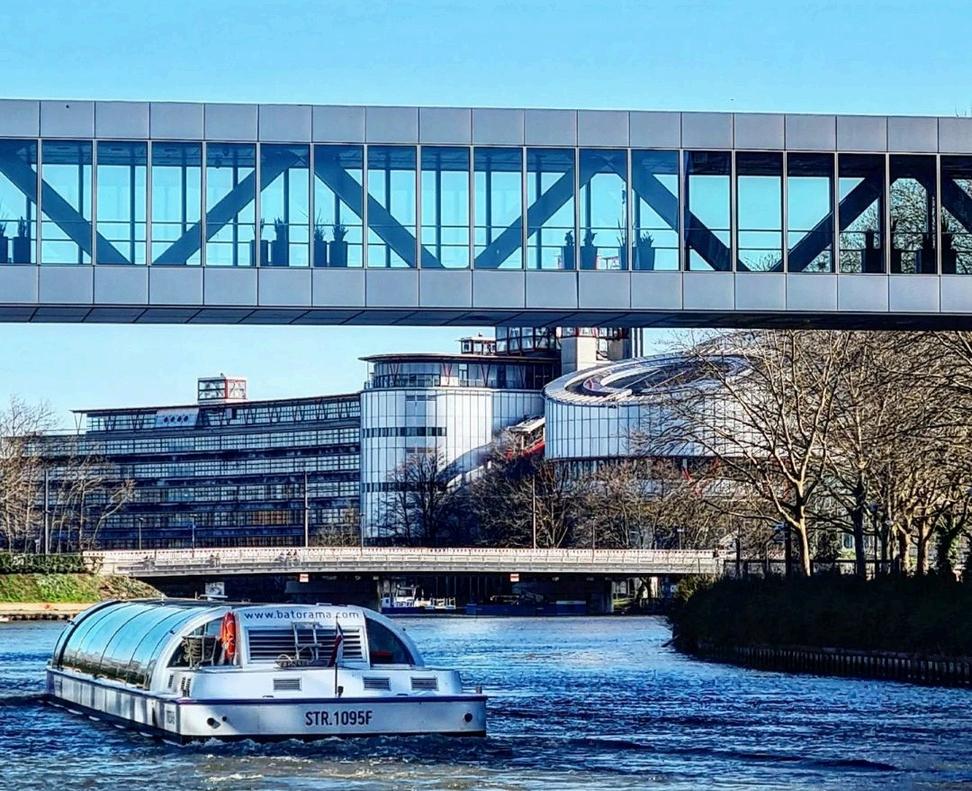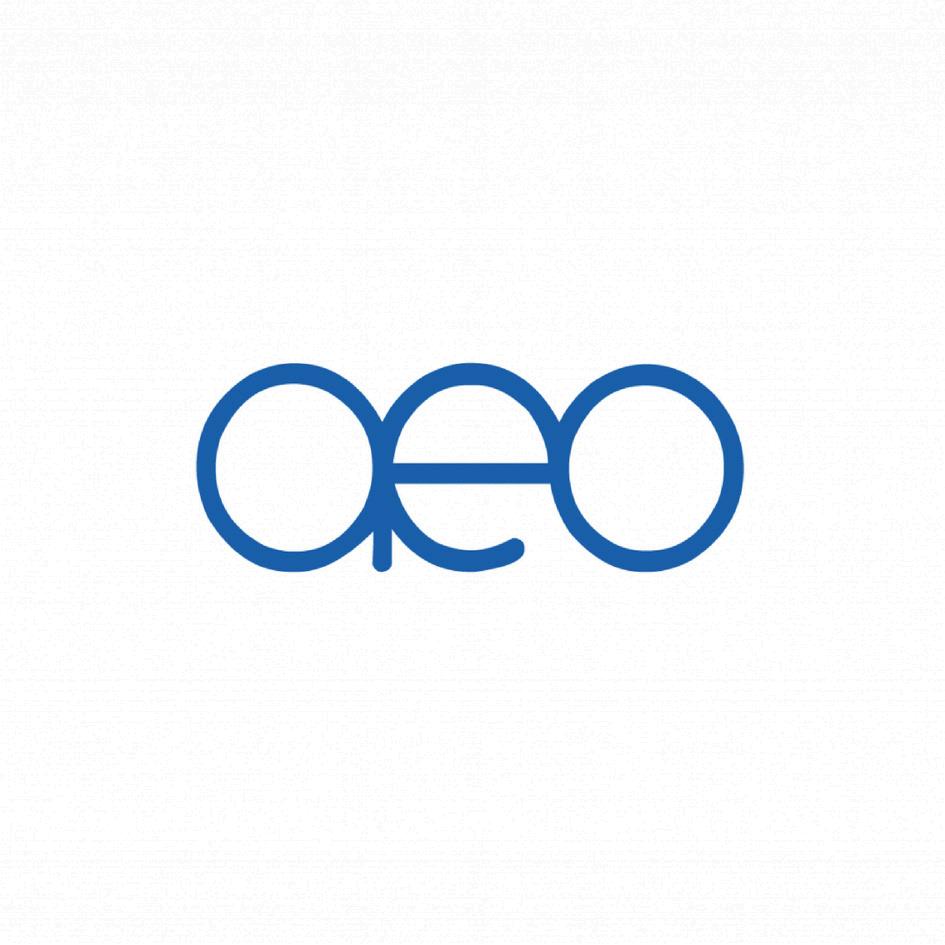European Parliament Elections

ACCREDITATION PROCEDURES IN THE EUROPEAN UNION FOR INTERNATIONAL CIVIL SOCIETY ELECTION OBSERVERS
AGORA ELECTION OBSERVATION




European Parliament Elections

ACCREDITATION PROCEDURES IN THE EUROPEAN UNION FOR INTERNATIONAL CIVIL SOCIETY ELECTION OBSERVERS
AGORA ELECTION OBSERVATION



Introduction
Types of accreditation procedures
How the data was collected
Countries without accreditation procedures (Denmark, Estonia, Germany, Slovakia and Sweden)
Countries which allow observation without the need for accreditation only for voting (Czechia)
Countries where access to polling and counting is at the discretion of the returning officer (Ireland)
Countries where international NGO observation is not permitted (Austria, Belgium, Cyprus, Luxembourg and Portugal)
Countries requiring accreditation for international observers from NGOs (Bulgaria, Croatia, Finland, France, Hungary, Latvia, the Netherlands, Poland, Romania and Slovenia)
Countries which do not respond to inquiries on accreditation procedures (Greece, Italy, Lithuania, Malta and Spain)
In view of the upcoming elections to the European Parliament from 6 to 9 June 2024, this publication gives an overview of the accreditation procedures across the European Union for civil society international observers. In particular, this research examines how international commitments are reflected in national legislation and how they are implemented in practice
Since 2014, the team of the Estonian non-governmental organisation Agora Election Observation (Agora) and its predecessor AEGEE Election Observation have organised 29 election observation missions for young observers (18 to 30 years old) across Europe, including one for the European Parliament elections in 2019. The experience has shown that election observation for representatives of civil society, in this case from NGOs, is not possible in all EU countries either due to national legislation or a lack of practical implementation by administrations.
All EU Member States are part of the Organisation of Security and Cooperation in Europe (OSCE) and signed commitments in the Copenhagen Document in 1990 regarding free elections.
All of the member states of the EU have legal provisions allowing observers from the Office of Democratic Institutions and Human Rights (ODIHR), which is the OSCE institution organising election observation missions, to come and observe elections.
Art. 8 of the 1990 Copenhagen Document:
The participating States consider that the presence of observers, both foreign and domestic, can enhance the electoral process for States in which elections are taking place. They therefore invite observers from any other CSCE participating States and any appropriate private institutions and organizations who may wish to do so to observe the course of their national election proceedings, to the extent permitted by law. They will also endeavour to facilitate similar access for election proceedings held below the national level. Such observers will undertake not to interfere in the electoral proceedings.
1. EU countries that allow observation without the need for accreditation: Denmark, Estonia, Germany, Slovakia and Sweden
2. EU countries which allow observation without the need for accreditation only during voting procedures: Czechia*
3. EU countries in which the access to the polling and counting is at the discretion of the returning officer [2]: Ireland
4. EU countries that do not allow international observation from NGOs: Austria, Belgium, Cyprus, Luxembourg and Portugal
5 EU countries requiring accreditation: Bulgaria, Croatia, Finland, France, Hungary, Latvia, Netherlands, Poland, Romania and Slovenia
6. EU countries which do not respond to inquiries on accreditation procedures: Greece, Italy, Lithuania, Malta and Spain
Agora started its research in November 2022 by contacting all Focal Points for EU Election Observation Missions. Even though they are not directly responsible for accreditation procedures in their respective countries, they have been useful in sharing information and the contacts of relevant institutions. This is particularly relevant because there is no publicly available database of all 27 EU member states containing descriptions of accreditation procedures or listing relevant contact points.
Out of the 27 Focal Points, only 6 countries responded. Those of Belgium, Germany, Slovakia and Sweden provided information concerning the accreditation procedures, while Lithuania and Poland shared relevant further contacts. [3]
In the second stage, Agora conducted research to identify the relevant accreditation bodies in each state. It further contacted the 27 EU member states from the 11th of January until the end of June 2023
In cases where inquiries about accreditation procedures were unanswered, up to four follow-up emails were dispatched
The team of Agora has observed Parliamentary Elections in Slovakia (2020), Germany (2017), Estonia (2015) and the European Parliament Elections in Denmark, Estonia, Germany and Slovakia (2019).
On the one hand, the absence of accreditation procedures lowers the bureaucracy burden and facilitates international observation. On the other hand, Agora’s experience has shown that occasionally, the absence of an official accreditation procedure can complicate access to the polling stations, particularly when election officials are not familiar with the legislation on election observation.
Herein is an excerpt from the Preliminary Statement of the AEGEE Election Observation mission to the 2017 German Bundestag Election:
According to the German Electoral law (paragraph 54) anyone interested is entitled to observe the elections. AEGEE Election Observation welcomes this progressive legislation that allowed the team to observe without accreditation However, AEGEE Election Observation STOs noted that local electoral commissions were not always familiar with this particular provision AEGEE Election Observation was refused access to one polling station in Bamberg. [4]
[[4] https://wwwprojectsaegeeorg/eop/a-well-coordinated-german-electionleaves-space-to-improve-youth-participation/
[5] https://wwwprojectsaegeeorg/eop/final-report-mission-to-the-2020slovak-parliamentary-elections/
And an excerpt from the AEGEE Election Observation Final Report for the Parliamentary Election in Slovakia (2020):
According to the Election Law, anyone interested in observing the process of voting and vote counting has the right to be present in the polling station without the need to be accredited. AEGEE Election Observation welcomes this accessibility that provides for election observation without bureaucratic impediments. On the other hand, the overly broad formulation does not mention stages of the election process and therefore leaves space for inconsistent interpretation by election officials on how to deal with election observers, in particular before the opening of the vote. Overall, election commissions were cooperative and did not restrict AEGEE observers in their observation. [5]
Additionally, the Slovak law does not regulate whether observers can be granted access to buildings with restricted access such as the Ministry of Interior (MoI). In 2020 the ballots for the out-of-country voting were counted there. Security guards at the MoI were instructed to let election officials in but did not receive any instructions regarding election observers.
C O U N T R I E S W H I C H
A L L O W O B S E R V A T I O N
W I T H O U T T H E N E E D
F O R A C C R E D I T A T I O N
O N L Y F O R V O T I N G :
C Z E C H I A
The team of Agora Election Observation observed Parliamentary Elections in Czechia in 2017. In some instances, observer teams were prohibited from observing the counting and, at times, were also denied access to polling stations during voting, especially in the absence of interpreters present to clarify their presence
Czechia: During voting, the presence of persons in the polling stations is not restricted and therefore, there is no accreditation requirement. The Chairman of the District Electoral Commission is responsible for the order in the polling station and the persons present are obliged to follow his/her instructions. At the same time, the potential language barrier should be noted if the Chairman requests clarification of the reason for the presence in the polling station.
However there is a need for accreditation for the counting process excluding foreign observers and non-Czech EU citizens residing outside Czechia.
The presence of other persons during the counting of votes is permitted by the State Electoral Commission under Section 8 par 2 point i) of the Act, according to which the State Electoral Commission “issues authorisation for the presence of other persons during the counting of votes by the precinct election commission”. The State Electoral Commission does so on the basis of its Resolution No 253 of 24 August 2021. For civil society the Resolution includes voters who demonstrate a legitimate interest. Concerning European Parliament elections, voters are Czech citizens and also EU citizens who have a permanent or temporary residency for at least 45 days in the Czech Republic who asked to be enrolled in the electoral list. The legitimate interest needs to be well-founded and proven. Those who vote in another EU member state for the European Parliament are not considered as a voter by the State Electoral Commission in such circumstances
C O U N T R Y I N W H I C H
A C C E S S T O T H E
P O L L I N G A N D
C O U N T I N G I S A T T H E
D I S C R E T I O N O F T H E
R E T U R N I N G O F F I C E R :
I R E L A N D
Ireland: The Election Commission of Ireland promised assistance to facilitate the observing of the European Parliament elections in the country. However the taking of the poll in each European Parliament constituency is a matter for the European Local Returning Officers, who organises polling stations, staff, distribution of polling cards and the ballot itself in their constituency. In particular, the observation of local polling and counting arrangements are at the returning officer’s discretion. More concretely the Election Commission of Ireland can provide a letter of facilitation to observers by the Chief Returning Officer for the European parliament elections. This is coordinated by the staff of the Franchise Section who support the Chief Returning officer in their role. The letter can normally be provided about three months prior to the elections.
C O U N T R I E S W H E R E
I N T E R N A T I O N A L N G O
O B S E R V A T I O N I S N O T
P E R M I T T E D : A U S T R I A ,
B E L G I U M , C Y P R U S ,
L U X E M B O U R G A N D
P O R T U G A L
Austria: In Austria election observation is only allowed for OSCE/ODIHR observers
The Austrian Federal Ministry of the Interior informs: “International election observation is allowed within the framework of the OSCE and its participating states. The relevant legal provision is § 9a of the European Elections Act. According to current Austrian legislation, other groups or organizations cannot formally deploy international election observers.”
Belgium: Recently Belgium underwent a reform of the election law changing the legal framework for international observers With the new law only observers from organisations that Belgium is a member of or observers sent directly by member states of these organisations can observe in Belgium excluding civil society observers. Back in 2019 and before the recent reform, AEGEE Election Observation, the predecessor to Agora, was able to deploy international observers during the European Parliament elections.
Hear the relevant article of the Belgium Electoral Code in its English translation: "Art. 203bis. § 1. Observers from international organizations to which Belgium is a member or from member states of these organizations may be authorized to follow all electoral operations.” * [6]
Cyprus: In Cyprus election observation is only allowed for OSCE/ODIHR observers.
The Ministry of Interior informs: “The electoral legislation does not currently provide for the presence of international observers in the elections. Therefore, there can be no mission deployment in Cyprus, except by OSCE observers.”
Luxembourg: Luxembourg has a very similar legal framework as Belgium regarding the possibility of international observers to participate in the electoral process. Given that the electoral law in Luxembourg is older than the Belgian reform it might have even been used as the inspiration for its neighbour country as the group of allowed observers is assessed by the same logic.
Here the relevant article of the Luxembourgian Electoral Law in its English translation: “Art.116 bis. (1) Observers from international organizations to which the Grand Duchy of Luxembourg has joined or from member states of these organizations may be invited by the Minister of Foreign Affairs on the occasion of legislative, European or municipal elections.” * [7] *The original French version: “Art116 bis (1) Des observateurs provenant d’organisations internationales auxquelles le Grand-Duché de Luxembourg a adhéré ou d’Etats membres de ces organisations peuvent être invités par le ministre des Affaires étrangères à l’occasion des élections législatives européennes ou communales [7] https://legiluxpubliclu/eli/etat/leg/recueil/elections/20230307 consulted on the 572023
Portugal: In Portugal, only candidate representatives can observe the elections, besides OSCE/ODIHR observers
As the the Portuguese National Election Commission informs:
“There is no regulation for electoral observers, both foreign and domestic, in Portuguese legislation, especially electoral laws. It is established by the Assembly of the Republic Electoral Law, in its article 93, the prohibition of the presence of non-voters in the place where the polling station is gathered. Exception is made to the delegates of the candidacies or candidates and agents of the candidacies that are subject to the suffrage, since they are the direct interested in the electoral act, nevertheless, in order to generate the adequate conditions to exercise the right to vote, should not be allow the presence of more than one representative of each candidacy within the polling station Thus, it is the responsibility of the delegates nominated by the candidacies to monitor and supervise voting operations and counting and tabulation and, in general, ensure the observance of the electoral law, and possess a set of powers, immunities and rights in order to guarantee the freedom to perform the functions of public interest.”
C O U N T R I E S R E Q U I R I N G
A C C R E D I T A T I O N F O R
I N T E R N A T I O N A L
O B S E R V E R S F R O M
N G O S : B U L G A R I A ,
C R O A T I A , F I N L A N D ,
F R A N C E , H U N G A R Y ,
L A T V I A , N E T H E R L A N D S ,
P O L A N D , R O M A N I A A N D
S L O V E N I A
Bulgaria: Applications for accrediation for international observers and interpreters have to be addressed to the Ministry of Foreign Affairs The accreditation period starts one month prior to election day and finishes one day before eday.
Croatia: According to Croatian law international observers are representatives from international organizations that are engaged in election observation, representatives of diplomatic-consular missions located in the Republic of Croatia, representatives of international electoral associations and representatives of electoral commissions from other countries. Both international observers and interpreters need to apply for accreditation online to the State Electoral Commission of the Republic of Croatia. The deadline for international observers ends 30 days before e-day and scans of passports must be submitted
Finland: In Finland, election observation can be carried out by election observers who represent Finnish or international election observation organisations and have been authorised by the Ministry of Justice. It is also required for interpreters to apply for accreditation.
The Ministry of Justice grants authorisations for election observers upon application. There is no legal deadline, but it is recommended to apply well in advance for the accreditation. The application must contain the following information:
- the elections concerned and the purpose of the observation,
- the election observation organisation that the observers represent,
- the name, date of birth and nationality of the election observers
A personal visit to the Ministry of Justice in Helsinki is a requirement for being granted an authorisation
Hungary: Hungary requires accreditation for international observers and interpreters by the National Election Office There is a form to be filled out by the applicant and the legal deadline is the ninth day prior to the elections.
AEGEE Election Observation observed the Hungarian Parliamentary elections in 2018 and European Parliament elections in 2019. Agora deployed an accredited mission in 2022 for the Parliamentary elections.
Latvia: The Central Election Commission (CEC) of Latvia grants accreditations to representatives of societies, foundations, educational institutions and such legal entities, whose main field of activity and purpose is to study political processes and elections. Interpreters must also be accredited if they intend to enter polling stations.
To receive accreditation, a formal application letter should be submitted indicating the aims of the organisation and providing a rationale for election observation.
Additionally, the application letter should contain the following information:
1) name and surname of persons to be accredited;
2) the number of identity document of these persons (passport or ID card) that will be presented to a polling station commission together with the election observer’s badge. The personal data will be used only for the purpose of election observers accreditation.
The application should be submitted not later than two weeks before eday.
The Netherlands: The Kingdom of the Netherlands requires only accreditation for international observers However a list with the names of the Dutch interpreters should be submitted with the accreditation application. Accreditation requests for observing elections held in the Netherlands must be received six weeks before the day of the elections at the latest.
To apply for accreditation, an election observation mission should submit with the Ministry of the Interior and Kingdom Relations a document with general details on the election observation mission (such as the name of the mission, the head of the delegation, the number of participants etc.). Moreover, each individual election observer should fill in a short form with personal details (requesting, for example, the full name, age and address of the observer). A copy of a valid passport must also be enclosed for each individual member of the delegation.
Poland: In the Republic of Poland both international observers and interpreters need accreditation from the National Electoral Commission; additionally international observers have to be approved by the Ministry of Foreign Affairs. There is no legal deadline to apply for the accreditation.
AEGEE Election Observation deployed accredited observers during the Polish Parliamentary and European Parliamentary elections in 2019. However in 2023 Agora, alongside other civil society observers received the accreditations only hours before the opening of the polling station on e-day, delaying access to polling stations for the observers deployed outside of Warsaw. [8]
Romania: Both international observers and interpreters need to be accredited by the Permanent Electoral Authority (PEA) Foreign observers are accredited by the PEA at the suggestion of the Ministry of Foreign Affairs. By the 28th of February 2024 the exact accreditation deadline had not yet been defined for the 9th of June European Parliamentary elections. Exact procedures and accreditation deadlines are usually published 2-3 months prior for each individual election.
[[8]
Slovenia: In the Republic of Slovenia both international observers and interpreters need accreditation by the State Election Commission The Slovenian law states that Representatives of domestic and foreign organizations, institutions, associations and societies and international organizations dealing with elections, protection of human rights, integrity or education have the right to observe elections and referenda in the Republic of Slovenia. Observers are also members or representatives of the central electoral bodies of other countries. The deadline is ten days before e-day.
C O U N T R I E S W H I C H D O
N O T R E S P O N D T O
I N Q U I R I E S O N
A C C R E D I T A T I O N
P R O C E D U R E S :
G R E E C E , I T A L Y ,
L I T H U A N I A , M A L T A A N D
S P A I N
Greece: The Greek Ministry of Interior informed Agora Election Observation on the 12.1.2023 that it forwarded the request internally to the relevant entity, but then no answer was received within 10 months despite numerous attempts to make contact.
Italy: Through late 2022 and 2023 the Italian Ministry for Foreign Affairs (MFA) did not respond to numerous attempts by email in order to apply for accreditation for the European Parliament Elections in 2024. This is in line with previous experiences from the European Parliament elections in 2019 as well as the Italian General Elections on 4 March 2018 when AEGEE Election Observation tried to get accredited. [9]
Lithuania: The Lithuanian Focal Point for EU observers was one of the five national Focal Points which responded to the email inquiry about accreditation within their respective member state and provided a contact email address from the Lithuanian MFA. Unfortunately, the MFA never answered numerous emails throughout 2022 and 2023.
Malta: Throughout late 2022 and 2023 the Maltese MFA did not respond to numerous attempts by email in order to apply for accreditation for the European Parliament Elections in 2024. For the European Parliament elections in 2019, the OSCE/ODIHR EOM for the Maltese Presidential elections was able to facilitate a contact person for accreditation and AEGEE Election Observations could have been deployed and was abandoned for logistical reasons by the NGO due to the late answer close to e-day
Spain: Through late 2022 and 2023 the Spanish Ministry of Interior did not respond to numerous attempts by email and was not able to answer questions by phone. The Spanish law does not provide for citizen or international election observation. The Autonomous Communities handle election observers inconsistently. For the Catalonian Early Parliamentary Elections on 27 September 2015 AEGEE Election Observation observers were granted access to all polling stations but not the data-entry computer room at tabulation level. [10] For the General Elections 0n 20 December 2015 regional administrations across Spain accredited at their discretion leading to a situation in which observers in Alicante were denied access to a number of polling stations.
[[9] https://wwwprojectsaegeeorg/eop/why-aegee-election-observation-will-not-send-amission-to-the-general-election-in-italy/ [10] https://wwwprojectsaegeeorg/eop/aegee-eom-catalonia-spain-final-report/ [11] AEGEE Election Observation Mission Final Report 6 March 2016 p18 https://wwwprojectsaegeeorg/eop/aegee-eom-spain-final-report/
Author
Proofreaders
Noemi Arcidiacono, Italy
Rocco Giovanni Dibiase, Italy
Tom Breese, United Kingdom
